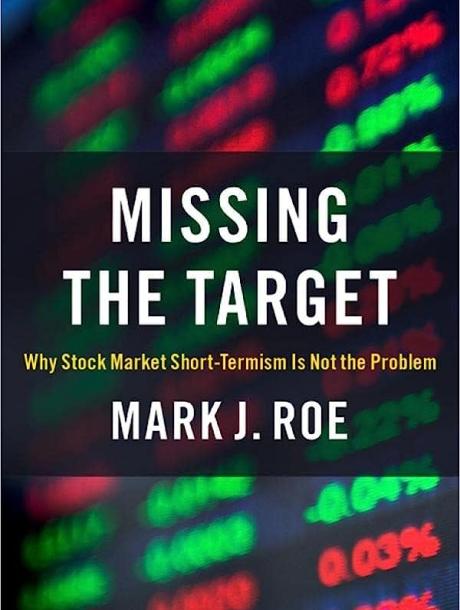
Missing the Target
Stock-market-driven short-termism is crippling the US economy, according to legal, judicial, and media thinking. Firms forgo the R&D they need, cut capital spending, and buy back their own stock so feverishly that they starve themselves of cash. The stock market is the primary cause: directors and managers cannot manage for the long-term when their shareholders furiously trade their companies’ stocks, they cannot invest enough when stockholders demand rising quarterly profits, they must slash R&D when investors demand that precious cash be used to buy back stock, and they cannot even strategize about the long-term when shareholder activists demand immediate results. The stock market’s short-termism is also blamed for environmental degradation, for contributing to global warming, and for employee mistreatment. This book shows, however, that the purported ills emanating from stock-market short-termism are either not shown, likely to minor, demonstrably false, or due to other pernicious economic causes. The social costs attributed to corporate short-termsim—environmental degradation, mistreatment of stakeholders, riaking climate catastrophe—emanate more from selfishness than from distorted time horizons, as we shall see. Moreover, public and policymaker obsession with stock-market short-termism as upsetting the economy and settled arrangements is explained more by dissatisfaction with the rapidity of technological change, the increasing uncertainty and instability of the workplace, and a dissatisfaction with overall economic arrangements. Lawmakers and pundits can readily miss more likely causes of the underlying issues—like how best to push forward US R&D—by mistakenly aiming at stock-market short-termism. After considering what the evidence tells us, we consider what political and social reasons could explain the issue’s prominence.
